What causes wheel bearing noise?
Wheel bearing noise
A worn or damaged wheel bearing can make noise that’s similar to a rumbling or roaring sound, but they can also fail without making any noise. Diagnosing wheel bearing noise can be difficult, especially if the wheel bearing failure is in the early stages. See this post on how to diagnose a bad wheel bearing.
What causes wheel bearing noise?
Wheel bearings come in many styles. The older wheel bearings
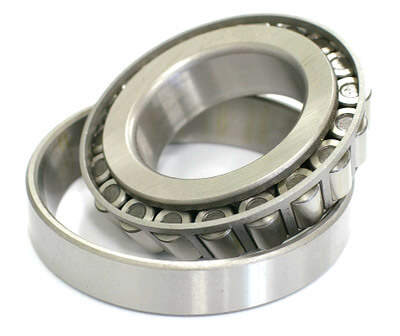
Tapered wheel bearing
had a tapered design with a separate bearing for the inner and outer portions of the wheel hub. Other wheel bearings are a single unit that’s pressed into the hub. That style incorporates two rows of ball or tapered bearings and two races. Most have an integral grease seal to
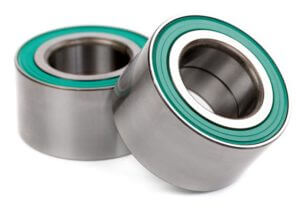
sealed wheel bearing
keep water and road grit out of the bearing. Then there are integral hub units that incorporate the bearing and wheel hub in a single unit. Here’s how they fail:
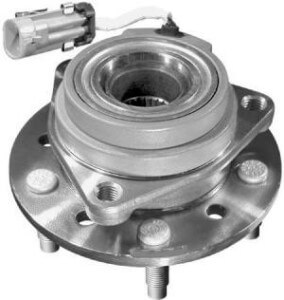
Wheel bearing hub assembly
1) Moisture and road debris enter the bearing and degrade the grease. Driving off-road and through large puddles is the most common cause of water and dirt infiltration.
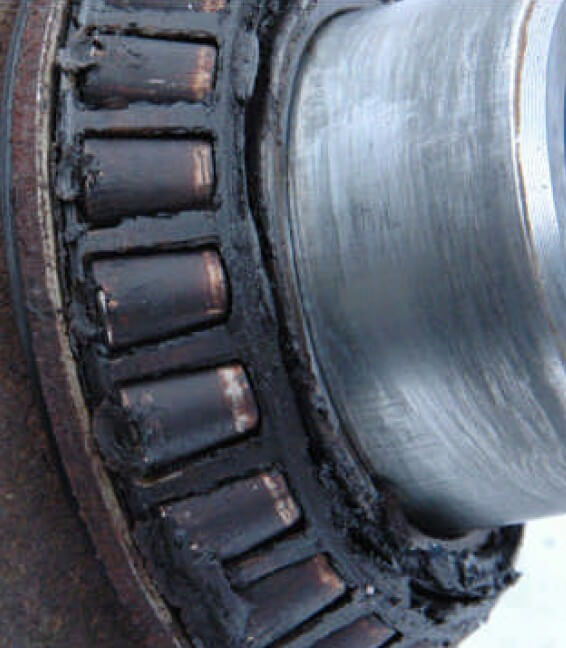
Failed seal on wheel bearing allows water in, which degrades the grease and causes early failure
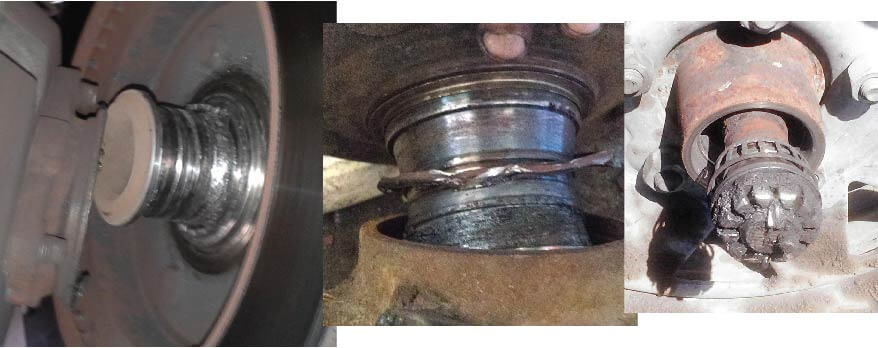
2) Improper torque. Manufacturers aren’t kidding when they publish their axle nut torque specs. A loose axle nut allows wheel movement especially in turns and that places too much stress on the bearing, causing it to wear out prematurely.
3) Custom wheels, wheel spacers and wheel offsets. Yeah, they look cool, but they also change the wheel/bearing geometry, causing early bearing failure.
4) Impact damage from hitting a curb or pot holes. The impact chips the chrome plating off the balls and rollers and that eventually damages the race. A wheel bearing can also be damaged during installation if you use an impact wrench to tighten the axle nut. All bearing manufacturers warn against using an impact wrench. Use a ratchet and torque wrench.
5) Normal wear from prolonged service.
Typical wheel bearing noises
1) Roaring when driving straight. Roar tone and volume changes slightly when changing lanes or making turns or any time you change the load characteristics .
2) Popping noise when changing lanes or turning. This is usually caused by improper axle nut torque.
3) Clicking when driving straight or in turns. Worn CV joints can also make a clicking sound, but that happens most often in tight turns at low speeds, so don’t confuse the two.
4) Grinding caused by severe ball, roller and race degradation.
5) Vibration caused by the irregular surfaces of the balls, rollers and race.
For information on how to locate the wheel bearing causing the noise, see this post
©, Rick Muscoplat
Posted on by Rick Muscoplat
